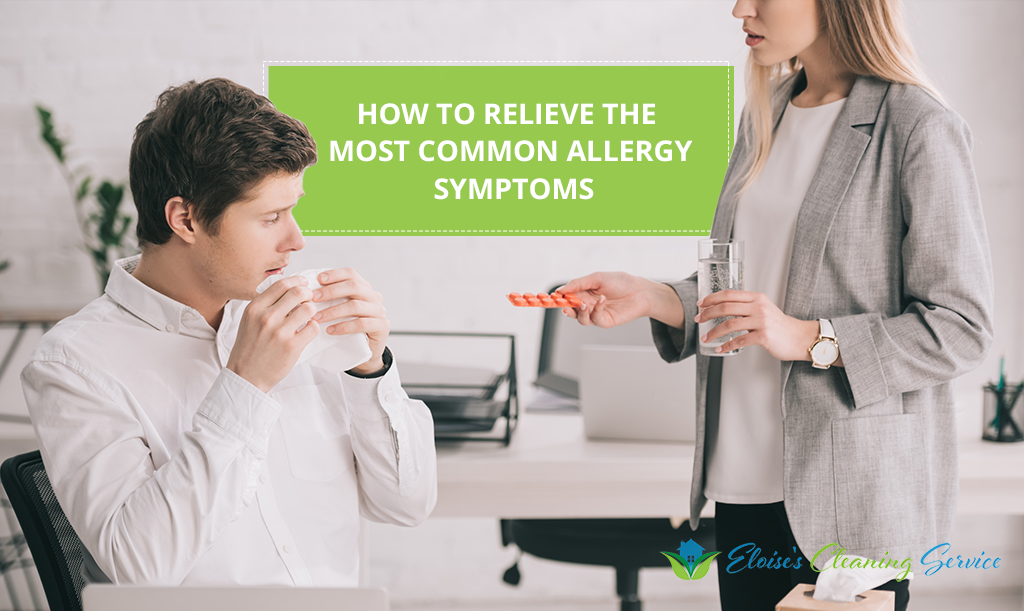While spring paints a beautiful scenery every day thanks to the longer days and warmer temperatures, lots of people suffer through the same daily cycle of allergy symptoms: runny noses, irritated throats, red eyes, etc. Most of these can be treated with corticosteroids, decongestants, and antihistamines, but some still want to use home remedies to avoid taking medication every day.
Luckily for everyone, there are many home remedies to treat allergy symptoms. You really can’t go wrong with trying a few of them before going for allergy medication out of the bat. Remember that these are best suited for the mild, mostly annoying version of these symptoms, and if you suspect that you or someone around you is having an extreme allergic reaction or anaphylactic reaction, you should contact 911 immediately.
Runny noses
How do pollen and dust allergies work? Well, it’s mostly about those elements getting stuck inside the tiny passageways behind your nose, and your body trying to get rid of them through mucous, coughs, sneezes and tears. A neti pot full of a saline rinse helps you flush those “strange bodies” out of your nose and relieve your symptoms, just make sure that your solution is completely sterile to avoid infections.
If the whole “running liquids through my nose” thing is not for you, you can try a nasal spray, which uses a saline solution and functions similarly, but limit yourself to one use per day to avoid irritating your nasal passage.
Itchy or irritated eyes
One of the most common symptoms for allergy is, thankfully, one that has many, many home remedies available to treat it. A classic treatment is to make some very concentrated chamomile tea (1 tea bag to 1 cup of water), steeping for 5 minutes, and letting it cool off completely before using a cotton pad to apply the tea around your eyes. Cucumber slices are also good for swollen eyes; all you have to do is chill them for about 10 minutes and press them against your eyes (careful with the spoons!) until they get warm, at which point you can replace them for another chilled pair.
Sore throat
You have to be careful when treating a sore or itchy throat because it might not be caused by allergies, but by a virus or bacterial action. If you’re 100% sure that you’re dealing with an allergy symptom, try downing a spoonful of organic honey, which will coat your throat and prevent pollen or other allergens from sticking to it and causing a reaction.
You can also try some warm chamomile tea with lemon and honey if you want to go the extra mile, a triple-threat that not many throats can resist. Due to the interconnected nature of your respiratory system, treating your nose with a saline spray can also relieve the symptoms for your throat.
Headaches
Allergy headaches are mostly prevented by avoiding exposure to triggers both outdoors and indoors, but since these are at their peak during spring, you might want to keep your windows closed and reduce your exposure to dust mites, use a dehumidifier to prevent mold growth, and keep a very clean house all around. Some home remedies to keep in mind are to apply a warm, slightly moist rag to your face, inhale some steam a couple of times per day, and treat the pain with some Tylenol or Advil as a short term solution.
Angioedemas (swelling under the skin)
Any swollen body part is cause for alarm for most people, and rightfully so! When it comes to allergies, swelling is never a good sign, and you should immediately consult a physician to see if you’re out of danger. However, if the swelling is mild and you’ve confirmed 100% with a doctor that you’re not in danger, then you might want to try these home remedies. First of all, take an over-the-counter antihistamine to keep the swelling level down. An ice pack is also a good way to keep your blood vessels thin, but a cold compress can also help; just apply over the affected area and replace for a fresh one if needed.

